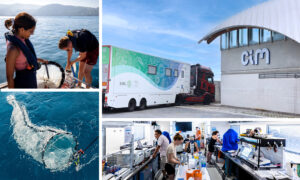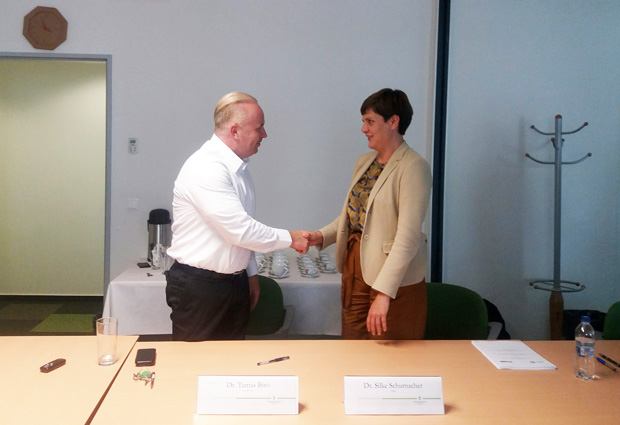
New EMBL Partnership in Hungary
EMBL partners with the Hungarian Centre of Excellence for Molecular Medicine

EMBL has recently formed an inter-institutional collaboration with the Hungarian Centre of Excellence for Molecular Medicine (HCEMM), setting the stage for the ongoing transfer of institutional, research and collaborative expertise between the two organisations. Researchers at HCEMM will also have access to the EMBL Partnership network across Europe and further afield.
HCEMM is a newly established non-profit organisation, researching the diagnosis and treatment of cancer, cardiovascular and inflammatory diseases. It will bridge the gap between fundamental and translational research by undertaking projects with relatively rapid clinical applications. Following EMBL’s model, HCEMM aims to provide scientific autonomy, transparent policies, financial stability and modern infrastructure for talented scientists. The goal of HCEMM is to become an internationally recognised centre of excellence in molecular medicine. To achieve this, researchers at HCEMM will have access to advanced core facilities, effective processes for technology transfer and active links to industry.
HCEMM was founded by the Biological Research Centre of the Hungarian Academy of Sciences, the University of Szeged, and Semmelweis University. Its headquarters are located on an international campus in Szeged, with other research groups in Budapest. This is EMBL’s fifth remote partnership (a partnership outside the countries where EMBL has its six sites) and its first in Central Europe.
HCEMM was financed, in part, by a Horizon 2020 Teaming grant. The Teaming initiative partners leading European institutions with other institutions or regions that are less established in the fields of research and innovation, with the aim of creating new centres of excellence across the continent.


